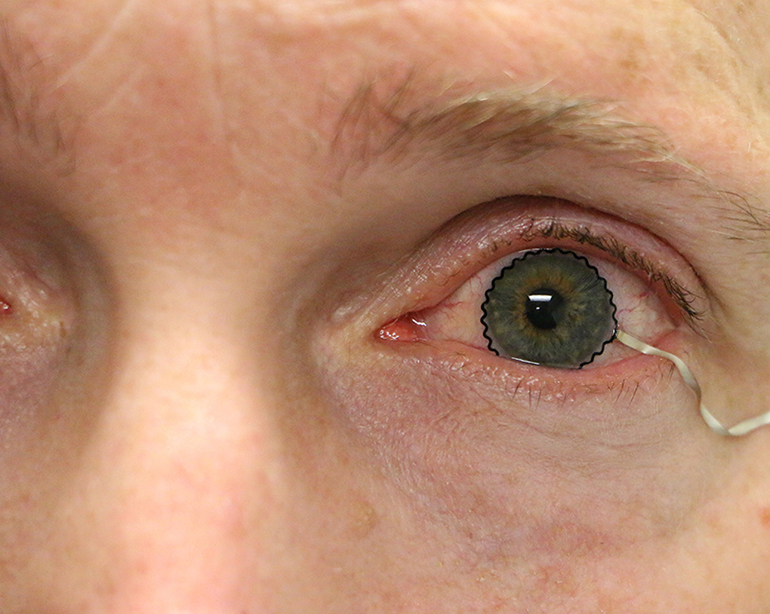
Electroretinography is a common technique for diagnosing and following up on eye conditions such as glaucoma, diabetic retinopathy, and retinitis pigmentosa. To perform an electroretinography exam, a device is placed against the eye that projects light onto it and measures the resulting electrical signals that are generated by the retina. Commercial electroretinography devices are rigid and require electrodes, often in the form of a hard contact lens, to touch the eye or the bulbar conjunctiva just underneath. This is irritating and unpleasant, and often requires general anesthesia or sedation to be administered, in addition to topical anesthesia.
Now researchers at Purdue University have unveiled a soft contact lens that is easy on the eye, provides superior electroretinography signal recordings, and that can be manufactured out of existing soft contacts. “This technology will be greatly beneficial to the painless diagnosis or early detection of many ocular diseases including glaucoma,” said Chi Hwan Lee, the lead scientist behind the new device, in a Purdue announcement. “Since the first conceptual invention by Leonardo da Vinci, there has been a great desire to utilize contact lenses for eye-wearable biomedical platforms.”
The technology is possible thanks to developments in flexible electronics and a new way to print the sensor components, using wet adhesive bonding, onto a soft contact lens. While the new development aims to improve how electroretinograms are performed, other types of sensors should be able to be attached to contact lenses to provide additional capabilities.
“This technology will allow doctors and scientists to better understand spontaneous retinal activity with significantly improved accuracy, reliability and user comfort,” added Pete Kollbaum, director of the Borish Center for Ophthalmic Research and an associate professor of optometry at Indiana University, who is leading clinical trials evaluating the new device.
Open access study in Nature Communications: All-printed stretchable corneal sensor on soft contact lenses for noninvasive and painless ocular electrodiagnosis
Via: Purdue
